第23章 LETTER IV(5)
In our peregrinations we came upon a Yamun, with its vestibule hung with scarlet, the marriage color as well as the official color. Within the door the "wedding garments" were hanging for the wedding guests, scarlet silk crepe, richly embroidered. Some time later the bridal procession swept through the streets, adding a new glory to the color and movement. First marched a troop of men in scarlet, carrying scarlet banners, each one emblazoned with the literary degrees of the bride's father and grandfather. Then came ten heavily gilded, carved, and decorated pavilions, containing the marriage presents, borne on poles on the shoulders of servants; and after them the bride, carried in a locked palanquin to the bridegroom's house, completely shrouded, the palanquin one mass of decoration in gold and blue enamel, the carving fully six inches deep; and the procession was closed by a crowd of men in scarlet, carrying the bridegroom's literary degrees, with banners, and instruments of music. It is the China of a thousand years ago, unaltered by foreign contact.
There are many beggars, and a "Beggars' Square," and the beggars have a "king," and a regular guild, with an entrance fee of 1 pound. The shopkeepers are obliged by law to give them a certain sum, and on the occasion of a marriage or any other festivity, the giver sends a fee to the "king," on the understanding that he keeps his lieges from bothering the guests. They make a fearful noise with their two gongs.
There is one on the Shameen bridge who has a callosity like a horn on his forehead, with which he strikes the pavement and produces an audible thump.
After the cleanliness, beauty, and good repair of the Japanese temples, those of Canton impress me as being very repulsive. In Japan the people preserve their temples for their exquisite beauty, and there are a great many sincere Buddhists; but China is irreligious; a nation of atheists or agnostics, or slaves of impious superstitions. In an extended tramp among temples I have not seen a single male worshiper or a thing to please the eye. The Confucian temples, to which mandarinism resorts on certain days to bow before the Confucian tablets, are now closed, and their courts are overgrown with weeds. The Buddhist temples are hideous, both outside and inside, built of a crumbling red brick, with very dirty brick floors, and the idols are frightful and tawdry.
We went to several which have large monasteries attached to them, with great untidy gardens, with ponds for sacred fish and sacred tortoises, and houses for sacred pigs, whose sacredness is shown by their monstrous obesity. In the garden of the Temple of Longevity, the scene of the "Willow Pattern," dirty and degraded priests, in spite of a liberal douceur to one of them, set upon us, clamoring _kum-sha_, attempting at the same time to shut us in, and the two gentlemen were obliged to use force for our extrication. In the court of the "Temple of Horrors," which is surrounded by a number of grated cells containing life-sized figures of painted wood, undergoing at the hands of other figures such hell-torments as are decreed for certain offences, there is perpetually a crowd of fortune-tellers, and numbers of gaming tables always thronged with men and boys. Each temple has an accretion of smaller temples or shrines round it, but most, on ordinary occasions, are deserted, and all are neglected and dirty. Where we saw worshipers they were always women, some of whom looked very earnest, as they were worshiping for sick children, or to obtain boys, or to insure the fidelity of their husbands. "Worship" consists in many prostrations, in the offering of many joss-sticks, and in burning large squares of gilded paper, this being supposed to be the only way in which gold can reach either gods or ancestors. One or two of the smaller temples were thronged by women of the poorest class, whose earnest faces were very touching. Idolatry is always pathetic. It is not, however, idol worship which sits like a nightmare on China, and crushes atheists, agnostics, and heathens alike, but ancestral worship, and the tyranny of the astrologers and geomancers.
I like the faces of the lower orders of Chinese women. They are both strong and kind, and it is pleasant to see women not deformed in any way, but clothed completely in a dress which allows perfect freedom of action. The small-footed women are rarely seen out of doors; but the sewing-woman at Mrs. Smith's has crippled feet, and I have got her shoes, which are too small for the English baby of four months old! The butler's little daughter, aged seven, is having her feet "bandaged" for the first time, and is in torture, but bears it bravely in the hope of "getting a rich husband." The sole of the shoe of a properly diminished foot is about two inches and a half long, but the mother of this suffering infant says, with a quiet air of truth and triumph, that Chinese women suffer less in the process of being crippled than foreign women do from wearing corsets! To these Eastern women the notion of deforming the figure for the sake of appearance only is unintelligible and repulsive. The crippling of the feet has another motive.
I. L. B.